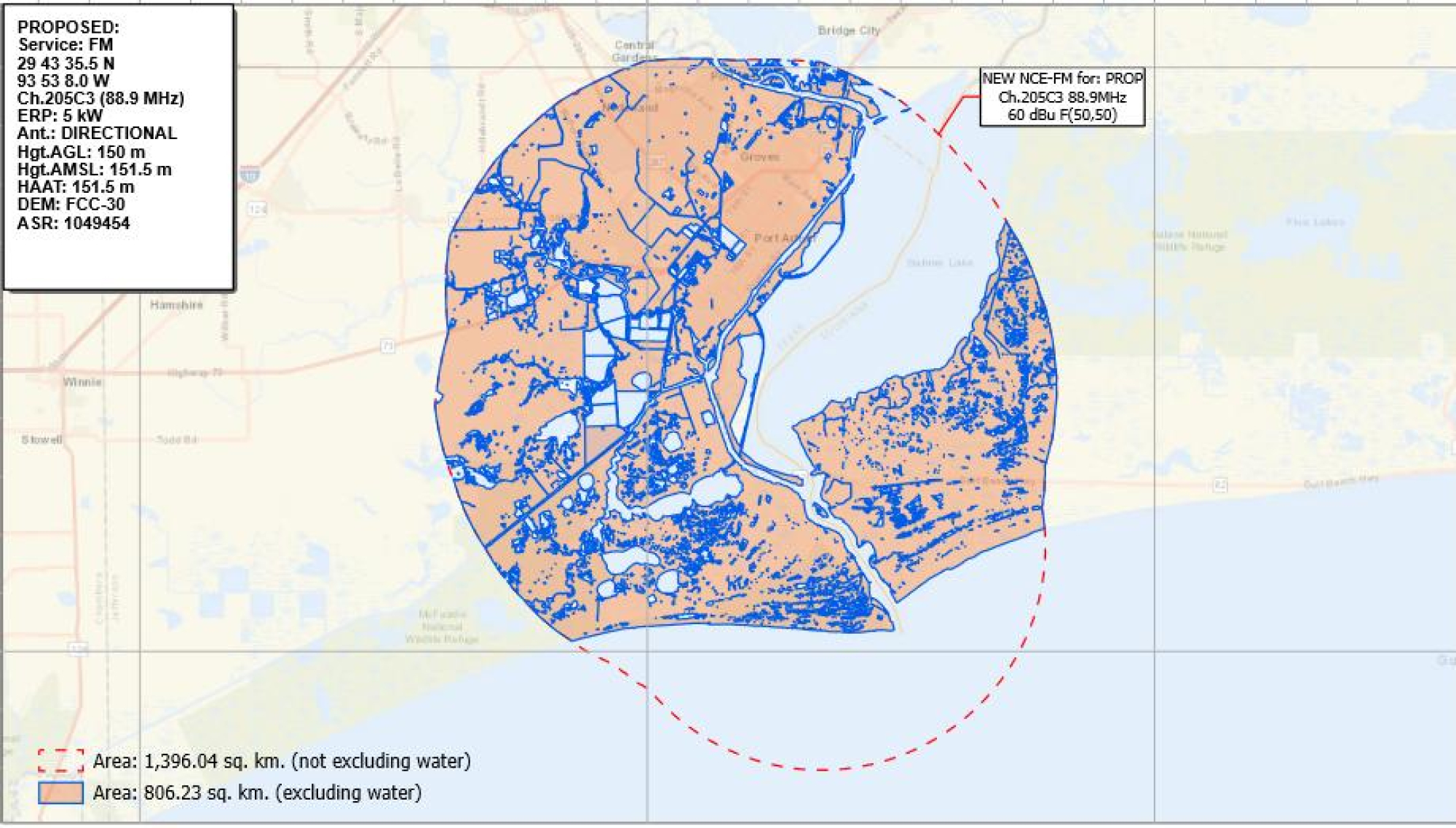Under that evaluation, two of the other applicants received no points, with Christian Ministries of the Valley, Inc.(CMV) which would still have a role in this particular set of circumstances. At issue in the petition filed by Call, was that both VMI and CMV calculated their land area and population figures incorrectly, by not taking into account large bodies of water covered by the proposed facilities over the Gulf of Mexico and Sabine Lake. The FCC agreed that those assertions made by Call in the petition were absolutely 100%, granting the petition in part. This did not result in a win however for Call.
Call had incorrectly assumed that the techincal mistakes would result in those applications being tossed out, but the FCC reiterated that in such situatiions, they would resolve the group based on acurate data. The FCC chose to use the exact data provided by Call to make a final determination that was not favorable to the petitioner.
When decided on points the enture group is considered before moving on to any tie-breakers. Neither of the two points awarded to Call and VMI were based at all upon which application may have been technically better, which requires that at least one applicant in the group proposes coverage over both 10% a greater area and population. While it is true, Call does beat VMI by having much greater than 10% coverage in both categories, they completely forgot about CMV. Call did not have greater area or population required over CMV, which would be the next best applicant in the group!
The FCC's original decision not to grant technical points to any application in the group was because no application was better than the next best application by that important 10% figure. Those points are calculated based on the entire group and Call received no technical points because of CMV, regardless of VMI. After the other two applications were then dropped for having no points at all, that still left equal points for the top two applicants. No tech points are awarded based on the lower scoring applicants being removed from the group. The point counting process at that point is completely over. With Call and VMI, evertything went into tie-breaking.
VMI was victorious because they had 0 existing authorizations compared to Call's 9 existing authorizations. Call is lost!
